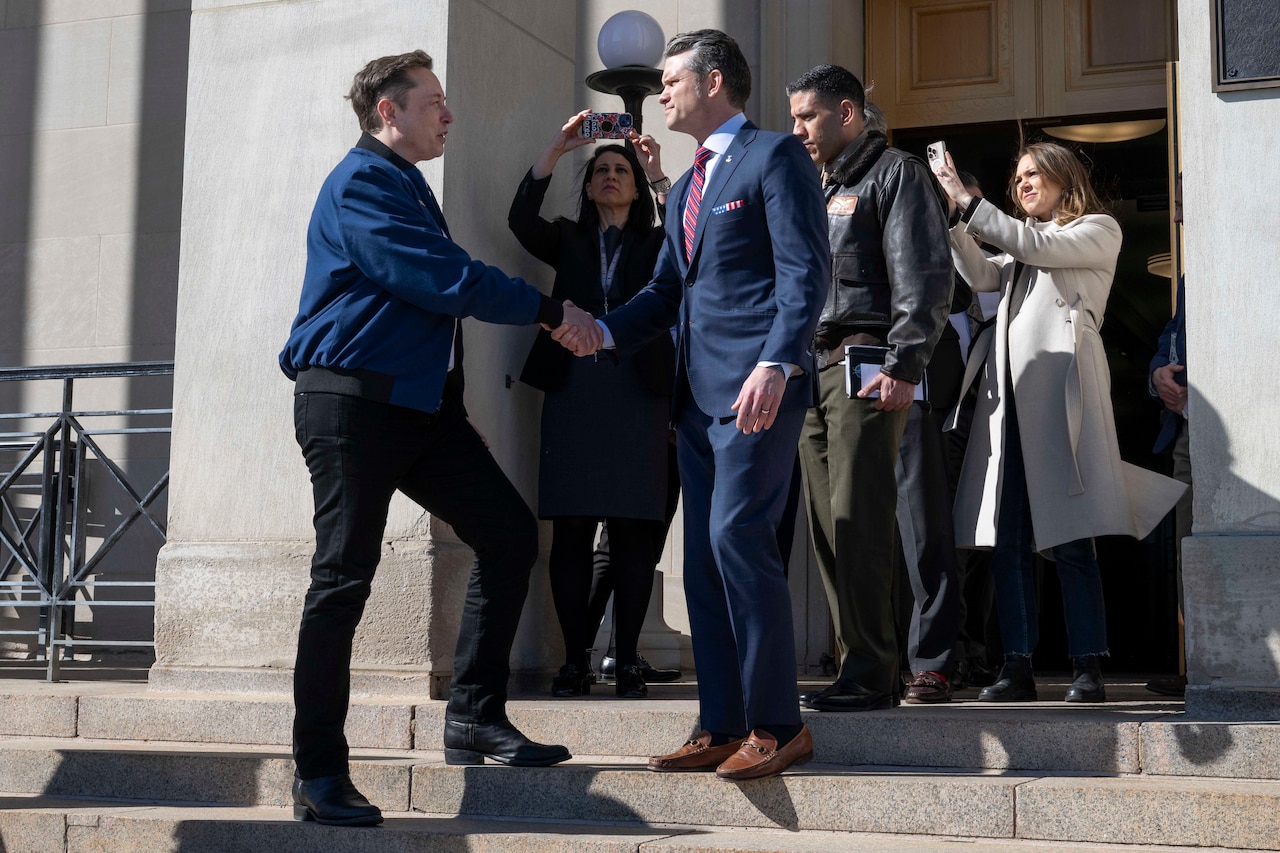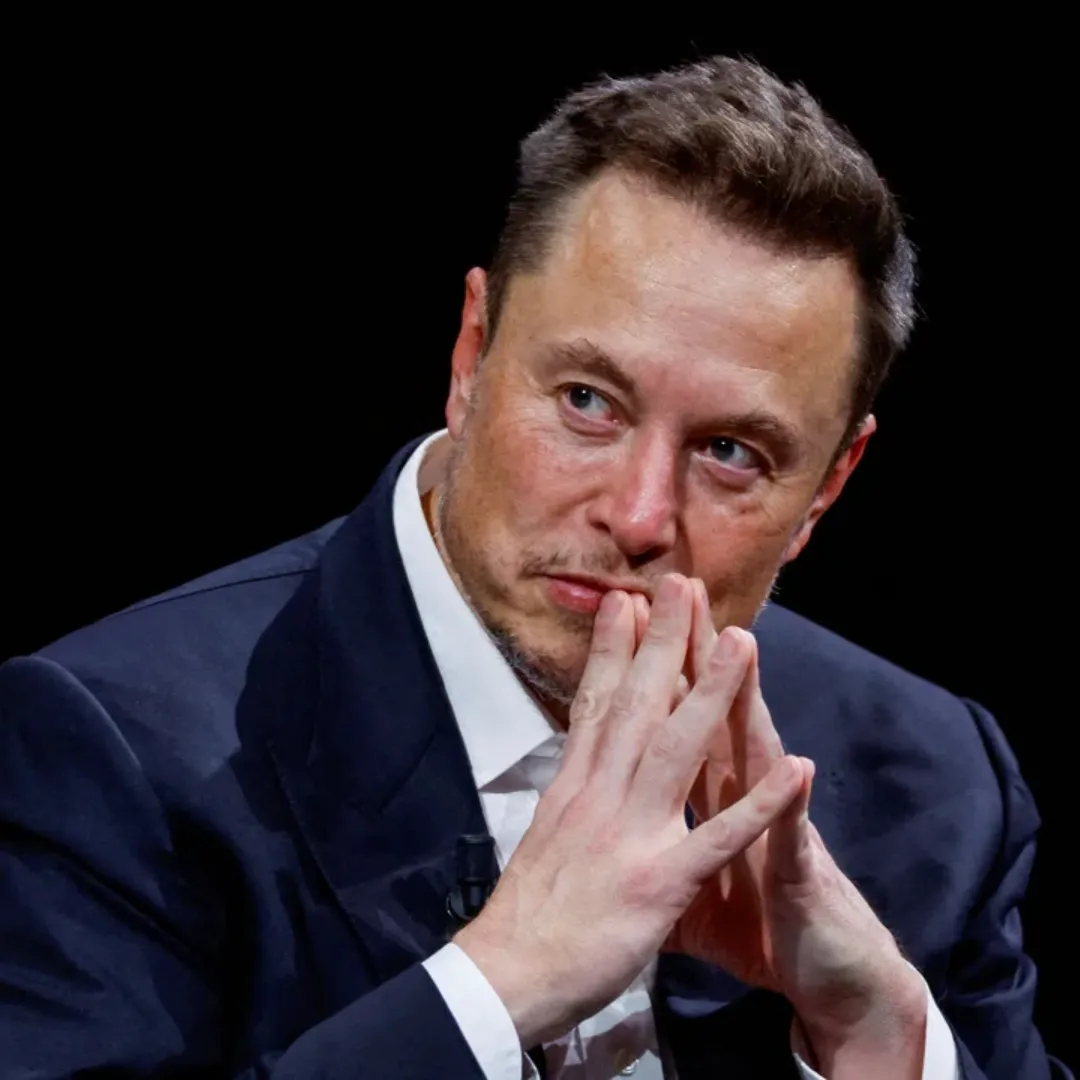In a curious twist of events, Elon Musk, the billionaire CEO of Tesla and SpaceX, has found himself in the middle of a national security investigation, a place few would expect to see him. This time, the issue at hand isn’t one of rocket launches or electric cars, but a breach of security involving a Signal chat that was accidentally compromised by the inclusion of a journalist.
The White House, in a move that could be seen as unorthodox, has enlisted Musk and his team at the Department of Government Efficiency (DOGE) to investigate how a journalist’s number was added to a private Signal chat with top national security officials.
The story, which began as a simple case of miscommunication, has since ballooned into a full-fledged scandal that has put the spotlight on the Trump administration's handling of classified information. National security adviser Mike Waltz, who apparently added The Atlantic Editor-in-Chief Jeffrey Goldberg to the group chat, is now at the center of the controversy.
Despite the fact that this incident was triggered by an accidental mistake, the implications are far-reaching. If the wrong person had gained access to the sensitive details of U.S. military operations, the consequences could have been disastrous.
As the investigation unfolds, the White House has maintained that no classified information was shared, but the revelations continue to raise eyebrows. In an unexpected move, the White House has turned to Musk and his technical expertise to determine how the breach occurred and to ensure such an event never happens again.
This partnership between Musk, known for his role as a top adviser to President Trump, and the White House has brought new attention to the intersection of technology, national security, and government oversight.
It all started with a Signal chat—a seemingly secure space for national security officials to discuss important matters. However, the chat quickly became a point of contention after it was revealed that Goldberg, a prominent journalist, was accidentally added to the conversation.

The group chat included several high-ranking officials, including Secretary of Defense Pete Hegseth and Vice President Vance, who were discussing sensitive military operations. At the center of the storm was Waltz, who, according to reports, was the one responsible for adding Goldberg to the chat.
Goldberg’s inclusion in the chat raised immediate concerns about security. The Signal app, known for its encryption and supposed security, was supposed to protect the details of military operations.
However, in this instance, the chat contained highly sensitive information—information that could have compromised U.S. national security had it fallen into the wrong hands. As the situation unfolded, it became clear that the issue wasn’t just a mistake; it was a serious breach of security protocols.
The crux of the problem was that Hegseth, in the course of the chat, had shared specific and sensitive details about the timing of an airstrike in Yemen, which was planned for March 15. He included the exact timeline of the airstrike and even disclosed what weapons would be used in the strikes.
These details, if intercepted or made public, could have given adversaries the ability to prepare for the attack, putting American military personnel in grave danger.
National security experts have been quick to point out the severity of this breach. “If this information had fallen into the hands of someone hostile to American interests, it could have jeopardized the mission and endangered lives,” one anonymous expert said. “The sharing of such details, especially on an unsecured platform, is not only reckless but irresponsible.”
In an unexpected development, Elon Musk has been brought in to help investigate how such a sensitive leak occurred. The White House press secretary, Karoline Leavitt, confirmed that Musk and his team at DOGE were now involved in the investigation, working to determine how Goldberg’s number ended up in the Signal chat.
“Elon Musk has offered to put his technical experts on this to figure out how this number was inadvertently added to the chat,” Leavitt told reporters. “Again, to take responsibility and ensure this can never happen again.”

This involvement is significant, given Musk's history of being a major adviser to President Trump and his outspoken approach to addressing inefficiencies in government. As the head of DOGE, Musk has been tasked with rooting out waste and improving the functionality of government agencies. His team has already been behind several high-profile overhauls and staff cuts at various federal agencies.
While Musk is primarily known for his work in technology, space exploration, and electric vehicles, his role in the investigation signals a new era where Silicon Valley expertise is being brought to bear on matters of national security. Musk, who has worn “tech support” t-shirts to meetings with both Cabinet members and Senate Republicans, is now positioning himself as a key figure in addressing government inefficiencies and security vulnerabilities.
Whether his technical expertise will help unravel the complexities of this breach remains to be seen, but his involvement adds an additional layer of intrigue to the growing scandal.
While the White House has continued to downplay the significance of the breach, with officials insisting that no classified information was shared, the release of more text messages from the chat has only intensified the scrutiny. The Atlantic, which had initially refrained from publishing certain details due to national security concerns, released additional excerpts of the conversation.
These texts, according to Goldberg, contained highly sensitive information that was originally withheld out of an abundance of caution.
In the texts, Hegseth shared not only the timeline of the airstrike but also the specific weapons that would be used in the strikes. He outlined the precise timing of when U.S. aircraft and drones would depart for Yemen.
The level of detail shared was unprecedented, especially considering the sensitive nature of the operation.
Despite the growing outrage over the breach, Waltz, who is a key player in the national security establishment, has defended his actions, acknowledging his responsibility for adding Goldberg to the chat but insisting that no harm was done. Speaking to Fox News, Waltz said that he had spoken with Musk about the issue and that Musk’s “best technical minds” were working to figure out how Goldberg’s phone number ended up in the chat.
Waltz’s comments, while attempting to take responsibility for the mishap, have done little to quell the growing storm. The national security community has made it clear that this breach was a serious error, one that could have had dire consequences.
Hegseth’s continued deflections and the White House’s insistence that no classified information was shared have only fueled the calls for accountability.

The political ramifications of this breach have been immediate and wide-reaching. While the White House has attempted to downplay the scandal, Democrats have seized on the incident as an example of the Trump administration’s lack of discipline and accountability in handling national security matters.
Senator Tammy Duckworth (D-Ill.) was among the first to call for Hegseth’s resignation, condemning him as a “liar” and accusing him of recklessly leaking classified information that could have endangered U.S. military personnel.
The calls for Hegseth’s resignation have only grown louder, with at least 16 Democratic leaders demanding that he step down or be fired. The anger isn’t just confined to the Democratic Party.
Some Republicans, such as Representative Don Bacon (R-Neb.), have also expressed their concerns about the breach, with Bacon accusing the White House of being in “denial” over the classified nature of the information shared.
Senator Roger Wicker (R-Miss.), the chairman of the Senate Armed Services Committee, has called for an investigation into the incident, signaling that even within the Republican Party, there are concerns about the handling of sensitive national security matters.
As the investigation into the Signal chat breach continues, one thing is abundantly clear: the stakes are high. The information shared in the chat was not trivial; it was a matter of national security.
The release of such information, even if unintentional, could have had catastrophic consequences for U.S. military personnel and for the broader national security apparatus.
Elon Musk’s involvement in the investigation is a notable development, signaling that the government is turning to new and unconventional sources to address critical security concerns. Whether Musk’s technical expertise can resolve the situation remains to be seen, but the incident highlights the growing intersection of technology, politics, and national security in an age where even the smallest lapses can have far-reaching consequences.
For now, the White House’s insistence that no classified information was shared seems to ring hollow as more details emerge. As the pressure mounts for accountability, it remains to be seen whether Hegseth and others involved in the breach will face any real consequences.
One thing is clear: the fallout from this breach will continue to reverberate through Washington, with significant political and national security implications.




